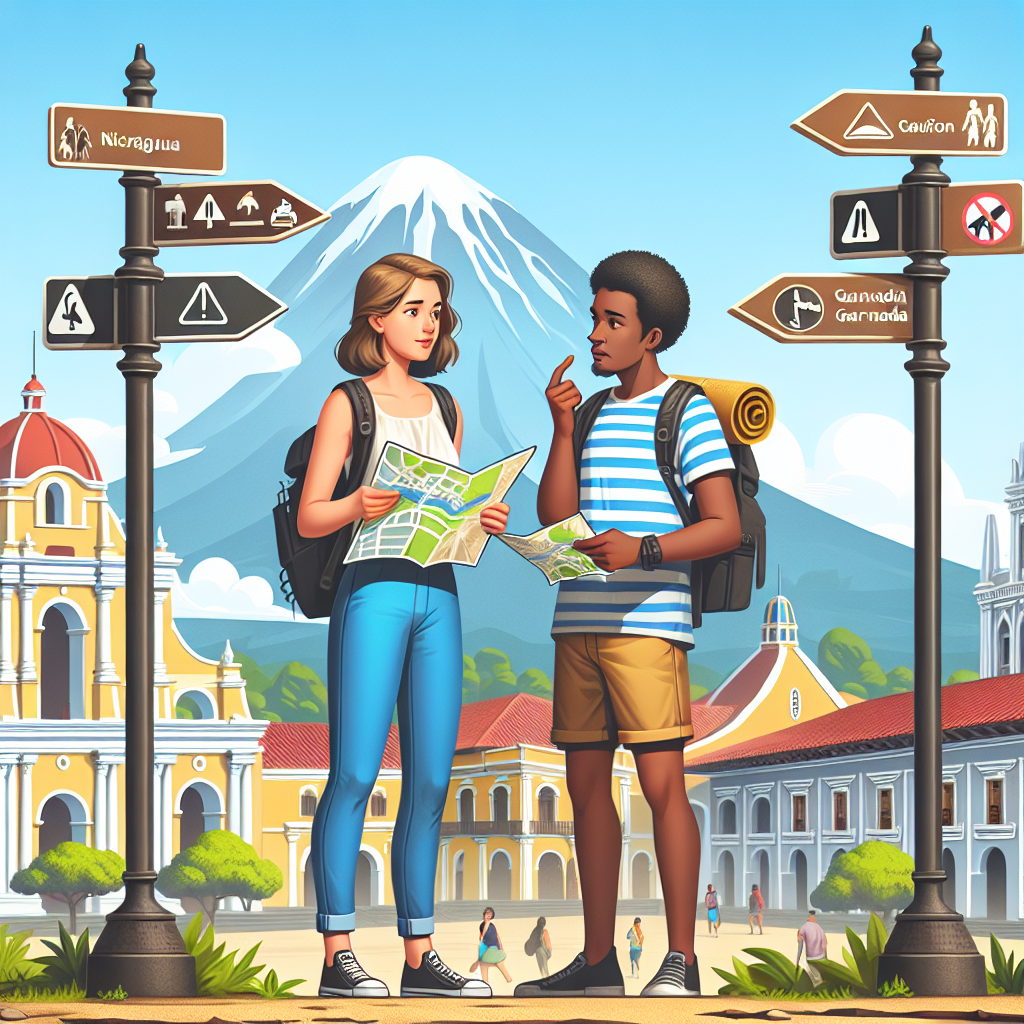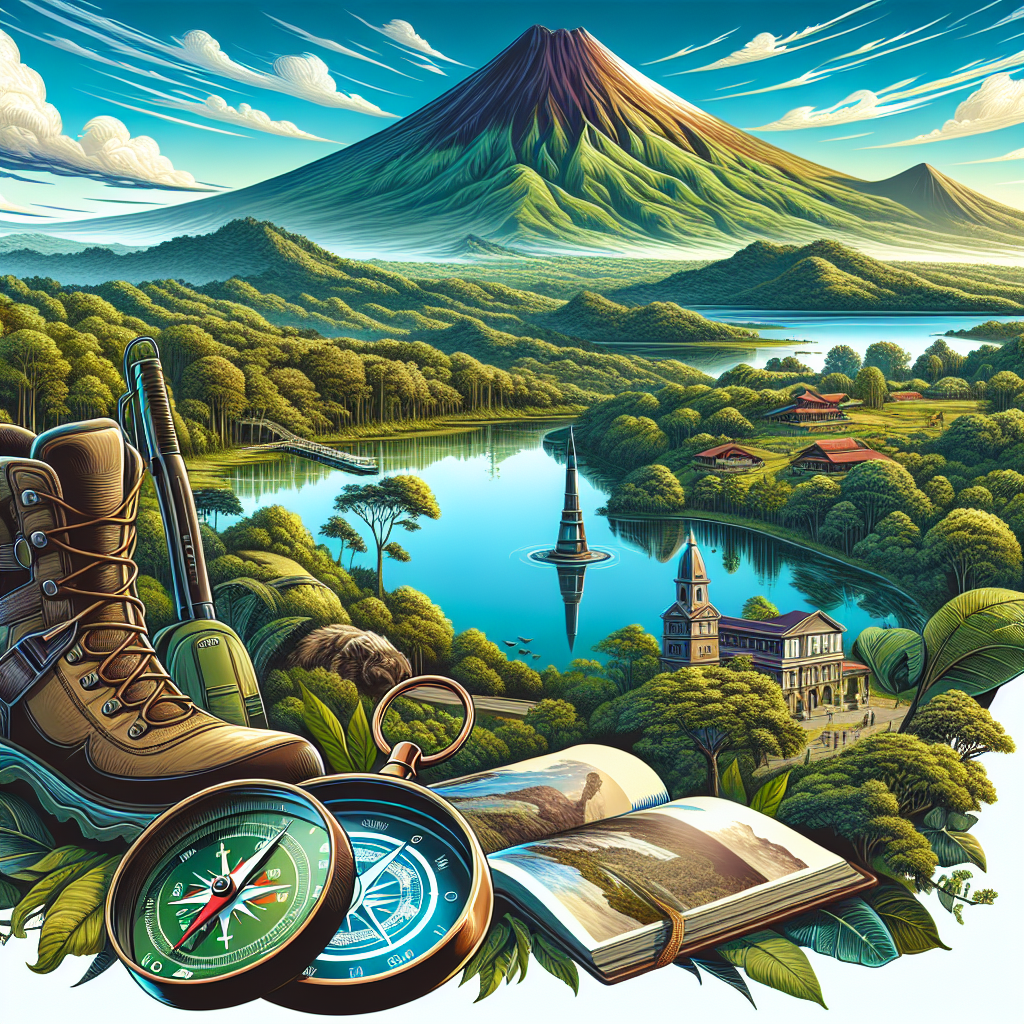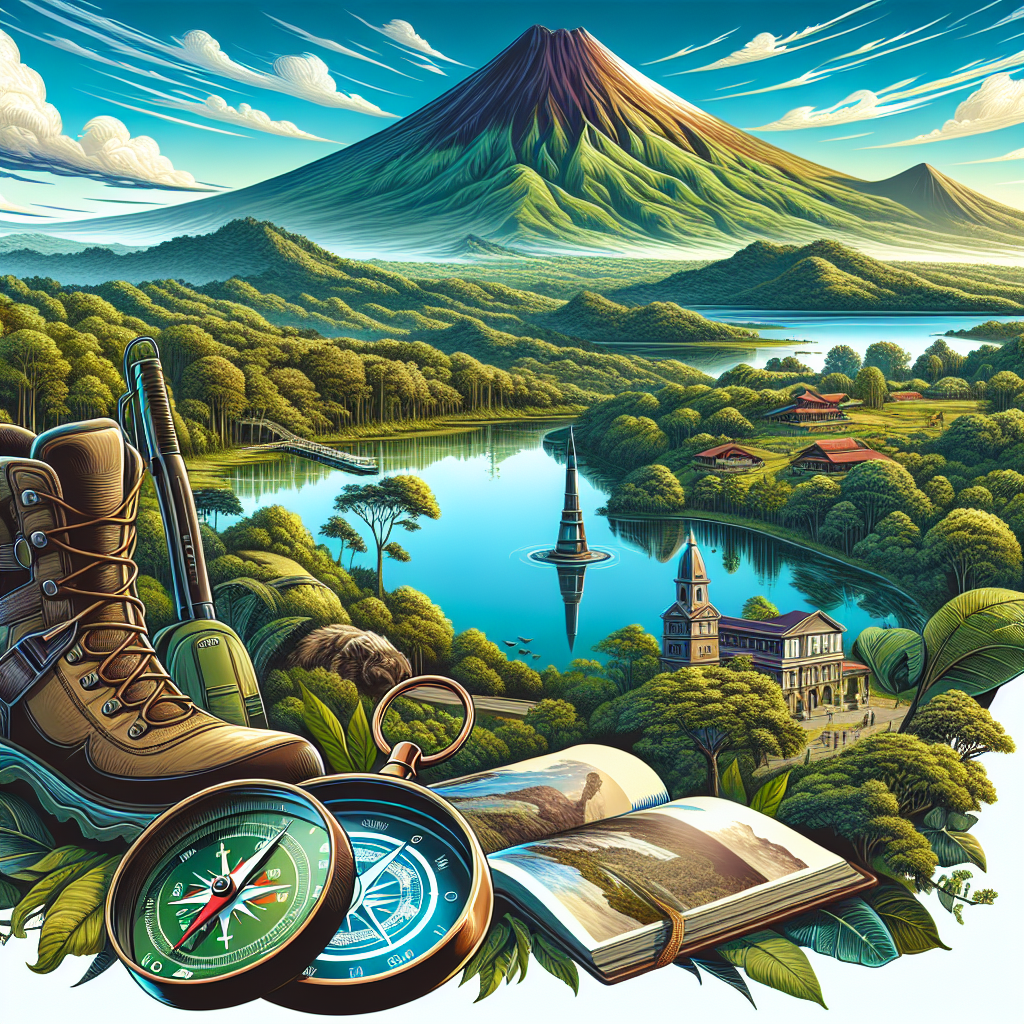Planning a trip to Nicaragua? Wondering about any specific travel advisories for this beautiful Central American country? Look no further! This article will provide you with all the essential information you need to know before embarking on your adventure. From safety precautions to current travel alerts, we’ve got you covered. So pack your bags, grab your passport, and let’s explore Nicaragua together!
Overview of Travel Advisories
General Travel Advisory for Nicaragua
If you are planning a trip to Nicaragua, it is important to stay informed about the current situation and be aware of any potential risks. While Nicaragua is known for its beautiful landscapes and rich culture, there are certain considerations that you should keep in mind to ensure a safe and enjoyable trip.
Political and Social Unrest
Political Demonstrations
Nicaragua has experienced periods of political unrest and demonstrations in recent years. These demonstrations can be intense and may turn violent. It is advisable to avoid participating in or being present at any political demonstrations to minimize your risk of harm. Keep in mind that the situation can change rapidly, so it is essential to stay updated on the current political climate.
Civil Unrest and Protests
In addition to political demonstrations, civil unrest and protests can occur throughout Nicaragua. These events can lead to road closures and disruptions in public services. It is best to avoid areas where protests are taking place and to stay away from any large gatherings or crowds to maintain your safety.
Avoidance of Large Gatherings
To safeguard your well-being, it is recommended to avoid large gatherings, rallies, or other public events. These gatherings can be unpredictable and may escalate into confrontations or violence. By keeping a safe distance and steering clear of such situations, you can reduce the likelihood of encountering any potential risks.
Stay Informed about the Current Situation
It is crucial to stay updated on the current situation in Nicaragua by regularly monitoring news sources and travel advisories. Familiarize yourself with the local laws, regulations, and customs to ensure that you are aware of any changes or potential risks. Being informed will empower you to make informed decisions and take necessary precautions during your travels.

Violent Crime and Safety
Street Safety and Pickpocketing
Like in any country, it is important to be conscious of your surroundings and take precautions to avoid becoming a victim of street crime. Petty theft, including pickpocketing, can occur in busy tourist areas, crowded markets, and public transportation. Keep your valuables secure, be mindful of your belongings at all times, and avoid displaying signs of wealth to minimize the risk of being targeted.
Armed Robbery and Express Kidnapping
While violent crime rates in Nicaragua are relatively low compared to some other countries, armed robberies and express kidnappings can still occur. These incidents typically target both locals and tourists, and they may involve the use of weapons. Ensure that you take appropriate measures to protect yourself, such as avoiding poorly lit or isolated areas and not displaying expensive items or large amounts of cash.
Criminal Gangs and Drug Violence
Nicaragua, like many other countries, has criminal gangs involved in drug trafficking and other illicit activities. These gangs can be involved in violence and should be avoided. Stay away from areas known for drug-related violence and exercise caution when interacting with strangers. It is always recommended to maintain a low profile and be aware of your surroundings to minimize any potential risks.
Precautions for Solo Travelers and Women
While Nicaragua can be a great destination for solo travelers, it is important to take extra precautions. Solo travelers, especially women, should be aware of their surroundings and avoid walking alone at night. It is also advisable to inform someone of your travel plans and regularly check in with them for added security. Consider using reputable transportation services and staying in well-reviewed accommodations to ensure your safety.
Avoid Travel at Night
To reduce the risk of encountering unsafe situations, it is recommended to avoid traveling at night. Many areas, particularly in rural regions, may lack proper lighting and infrastructure, making them more prone to accidents or criminal activities. Plan your journeys accordingly, allowing ample time to reach your destination before dark, or consider staying overnight in a secure location if necessary.
Road Travel and Transportation
Road Conditions and Driving Standards
When using the road network in Nicaragua, be aware that road conditions may vary, especially in rural areas. Some roads may be poorly maintained, lacking proper signage and lighting. It is advisable to drive cautiously, adhere to local traffic laws, and be prepared for unexpected obstacles or hazards. It may be helpful to familiarize yourself with the route and have a reliable map or navigation system for guidance.
Public Transportation Safety
Public transportation options, such as buses, are commonly used in Nicaragua. However, exercise caution when using these services, especially in crowded or unfamiliar areas. Keep an eye on your belongings at all times and be vigilant for any suspicious activity. If possible, consider using taxis or other reputable private transportation services for added safety and convenience.
Renting Vehicles and Motorcycles
Renting a vehicle or motorcycle can provide flexibility and independence while exploring Nicaragua. If you plan to rent, ensure that you select a reliable rental company with proper insurance coverage. Familiarize yourself with local driving regulations and road signage, as they may differ from your home country. Always wear a helmet if riding a motorcycle and understand the risks associated with two-wheeled transportation.

Natural Disasters and Climate
Hurricane Season and Tropical Storms
Nicaragua is susceptible to hurricanes and tropical storms, particularly from June to November during the hurricane season. These weather events can result in heavy rainfall, flooding, strong winds, and potential damage to infrastructure. Stay informed about weather updates and heed any warnings or evacuation notices issued by local authorities. If traveling during this season, consider purchasing travel insurance that covers trip interruptions or cancellations due to severe weather conditions.
Volcanoes and Earthquakes
Nicaragua is home to several active volcanoes, and earthquakes are not uncommon due to its location along the Pacific Ring of Fire. Stay updated on volcanic activity and be prepared for the potential impact it may have on your travel plans. Additionally, earthquakes can occur with little warning. Familiarize yourself with safety procedures in the event of an earthquake and follow any instructions provided by local authorities.
Health Risks and Disease Prevention
As with any travel destination, it is important to be aware of potential health risks and take necessary precautions. Ensure that you are up to date on routine vaccinations and consider additional vaccinations recommended specifically for Nicaragua. Mosquito-borne diseases, such as dengue fever and Zika virus, are prevalent in the country, so use appropriate insect repellents, wear long sleeves and pants, and sleep under mosquito nets when necessary. It is also advisable to drink bottled or filtered water and practice good hygiene to prevent food and waterborne illnesses.
Border Areas and Remote Regions
Border Security and Violence
Nicaragua shares borders with Honduras and Costa Rica, and there have been occasional security concerns in these border areas. It is advisable to cross the borders at official checkpoints and during daylight hours. Stay alert, keep your important documents secure, and follow instructions from border officials. Avoid any involvement with smuggling or illegal activities that can lead to serious consequences.
Restricted Access Areas
Certain regions in Nicaragua may have restricted access due to ongoing conflicts, land disputes, or other safety concerns. Pay attention to any travel warnings or advisories that have been issued by local authorities or foreign embassies. It is strongly recommended to respect these restrictions and avoid entering restricted areas to ensure your safety and maintain good relations with local communities.
Safety in Remote Regions
If you plan to explore remote regions of Nicaragua, it is important to take extra precautions. These areas may lack basic infrastructure, including medical facilities and reliable communication networks. Plan your itinerary carefully, inform someone of your travel plans, and consider traveling with a reputable guide or tour operator who is familiar with the area. Additionally, ensure that you have sufficient supplies, including water, food, and any necessary equipment for your journey.

Terrorism Threats
No Known Terrorism Threats
Nicaragua is not currently experiencing any known terrorism threats. However, it is always important to remain vigilant and report any suspicious activities or individuals to local authorities. Stay informed about the security situation in the country by monitoring official travel advisories and maintaining regular contact with your embassy or consulate.
COVID-19 Travel Advisory
COVID-19 Entry Requirements and Restrictions
Due to the ongoing global COVID-19 pandemic, Nicaragua has implemented various entry requirements and restrictions. These measures aim to protect public health and minimize the spread of the virus. Ensure that you are familiar with the latest entry requirements, such as required testing, vaccination certificates, and quarantine protocols, before planning your trip. Check with your airline or travel agent for specific information regarding COVID-19 travel restrictions.
Health and Safety Measures
To protect yourself and others from COVID-19 while traveling in Nicaragua, it is important to follow recommended health and safety measures. This includes practicing good hand hygiene, wearing face masks in public areas, maintaining physical distance from others, and avoiding crowded places. Stay updated on the local situation regarding COVID-19 and comply with any regulations or guidelines set forth by the Nicaraguan health authorities.
Travel Insurance Coverage
Given the uncertainties surrounding travel during the pandemic, it is advisable to obtain travel insurance that provides coverage for COVID-19-related disruptions. This may include trip cancellations or interruptions due to illness, quarantine requirements, or other unforeseen circumstances. Review the terms and conditions of your travel insurance policy to ensure that it meets your needs and provides adequate coverage for potential COVID-19-related incidents.

Travel Advisory Sources
Government Travel Advisories
Government travel advisories are an important source of information for travelers. Various countries, including the United States, Canada, the United Kingdom, and Australia, provide travel advisories specifically tailored to Nicaragua. These advisories offer up-to-date information on security risks, health concerns, and other important travel considerations. It is recommended to consult the travel advisories issued by your government before and during your trip.
Embassy and Consulate Information
Embassies and consulates can provide valuable assistance and support to citizens traveling abroad. Ensure that you have the contact information for your country’s embassy or consulate in Nicaragua in case of emergencies or if you require consular services. They can offer guidance regarding local laws and regulations, provide assistance in case of lost or stolen documents, and offer support during unforeseen circumstances.
Local Authorities and Tourist Offices
Local authorities and tourist offices can be excellent sources of information for travelers. They can provide insights into local safety and security matters, offer recommendations for tourist attractions, and provide guidance on cultural norms and customs. Take advantage of the resources available through local authorities and tourist offices to enhance your travel experience and ensure your safety.
Conclusion
When traveling to Nicaragua, it is essential to stay informed and follow travel advisories to mitigate potential risks. Personal safety should be a priority, and taking necessary precautions can help ensure a safe and enjoyable trip. Be mindful of your surroundings, avoid risky situations, and stay updated on the current situation in the country. By practicing responsible travel and respecting local customs, you can have a positive experience while exploring the beauty and culture of Nicaragua.

